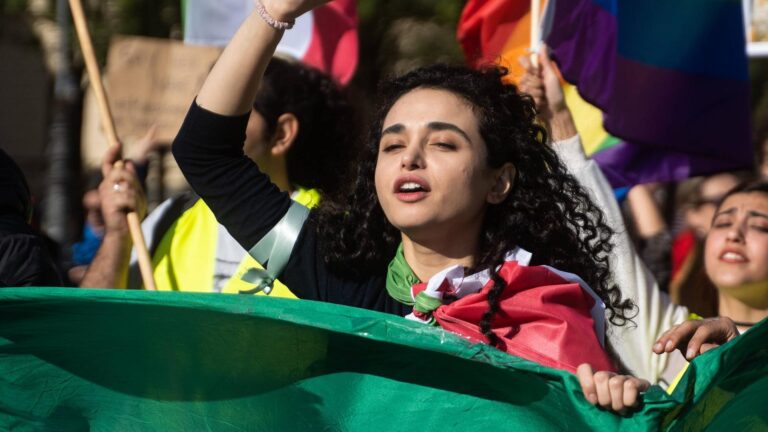Iran has recalled its envoys to the United Kingdom, France, and Germany following the failure of a China-backed proposal at the United Nations. The move marks a significant escalation in Tehran’s diplomatic tensions with key European powers amid ongoing geopolitical disputes. The proposal, which aimed to address critical issues related to Iran’s nuclear program and regional influence, did not secure the necessary support, prompting Tehran’s sharp reaction. This development underscores the increasing complexity of international efforts to engage with Iran amid volatile global dynamics.
Iran Recalls Envoys Amid Rising Tensions Over Failed China-Backed UN Proposal
In a significant diplomatic move, Iran has announced the recall of its envoys from the United Kingdom, France, and Germany following the collapse of a China-endorsed United Nations proposal aimed at addressing critical regional security issues. The failed initiative, which many analysts expected to pave the way for easing international sanctions and boosting cooperation, instead highlighted deep divides among key global players. Tehran described the setback as a “disappointment,” emphasizing that the rejection undermined efforts to foster constructive dialogue and peaceful resolutions.
The decision to withdraw ambassadors signals escalating tensions between Iran and several major Western powers. Below are some of the main factors influencing the diplomatic rift:
- Disagreement over nuclear program oversight and violations cited by Western nations.
- Sanctions relief demands sought by Tehran but opposed by coalition members.
- Strategic alliances backing the UN resolution, including China’s key role and opposition from Western diplomats.
This development adds pressure on international diplomatic channels and could reshape regional political dynamics in the coming months.
| Country | Envoys Recalled | UN Proposal Stance |
|---|---|---|
| Iran | UK, France, Germany | Opposed post-failure |
| China | N/A | Supported proposal |
| Western Powers | N/A | Divided on enforcement |
Analyzing the Geopolitical Implications of Tehran’s Diplomatic Retaliation in Europe
Tehran’s decision to recall its envoys from the United Kingdom, France, and Germany marks a significant escalation in its diplomatic posture amid the failure of a China-backed United Nations proposal. This move not only signals Iran’s frustration with Western resistance but also reflects a broader strategy of realigning its foreign relations in response to perceived diplomatic isolation. The immediate geopolitical implications extend beyond bilateral ties, potentially destabilizing ongoing negotiations on regional security and nuclear agreements. Western capitals must now contend with a recalibrated Tehran that seeks to leverage its alliances in Asia and the Middle East to offset European rebukes, complicating the diplomatic landscape.
The ripple effects of this diplomatic retaliation encompass several critical domains:
- European unity: The coordinated nature of Iran’s recall could test the cohesion of the European Union’s foreign policy framework.
- UN diplomacy: It exposes the fragility of multilateral efforts to mediate conflicts when major powers’ interests diverge sharply.
- Regional security: Heightened tensions may embolden hardline factions, increasing volatility in the Persian Gulf.
- China’s role: Beijing’s unsuccessful proposal reveals its complex balancing act between supporting Iran and maintaining ties with Western powers.
| Actor | Position | Impact |
|---|---|---|
| Iran | Retaliatory Diplomacy | Challenges Western influence |
| UK, France, Germany | Firm stance on UN proposal | Strained bilateral relations |
| China | Mediator of proposal | Diplomatic credibility tested |
| UN | Forum for negotiation | Diplomatic deadlock highlighted |
Strategic Recommendations for UK France and Germany to Navigate Escalating Iran-Europe Disputes
To de-escalate tensions with Iran, the UK, France, and Germany must adopt a multifaceted approach that balances diplomatic engagement with strategic firmness. Prioritizing back-channel communications can reopen dialogue avenues without the immediate pressure of public posturing. Parallelly, enhancing coordination with EU partners and the United States will reinforce a united Western front, ensuring that any diplomatic or economic measures carry the weight of collective resolve. Engagement through multilateral forums remains critical to rebuild trust and encourage Iran to return to constructive negotiations on its nuclear program and regional activities.
Practical steps include:
- Maintaining open economic dialogue to safeguard trade interests while applying targeted sanctions that minimize civilian harm.
- Developing joint crisis response protocols to avoid miscalculations, especially in the Strait of Hormuz and surrounding regions.
- Investing in intelligence sharing and cybersecurity cooperation to counter disinformation campaigns related to Iran-Europe relations.
| Recommendation | Expected Outcome | Key Actors |
|---|---|---|
| Back-channel diplomacy | Restore communication & reduce tensions | Foreign Ministries, Intelligence Agencies |
| Unified EU-US sanctions | Increased pressure on Iran’s leadership | EU Commission, US Dept. of State |
| Regional crisis protocols | Prevent escalation in conflict hotspots | Naval Commands, Security Councils |
To Wrap It Up
The recall of Iranian envoys to the UK, France, and Germany marks a significant escalation in Tehran’s diplomatic response following the rejection of the China-backed UN proposal. As tensions continue to rise, the move underscores the fragility of international negotiations surrounding Iran’s nuclear program and highlights the ongoing challenges faced by global powers in reaching a consensus. Observers will be closely monitoring the next steps from all parties as efforts to de-escalate the situation remain critical.




